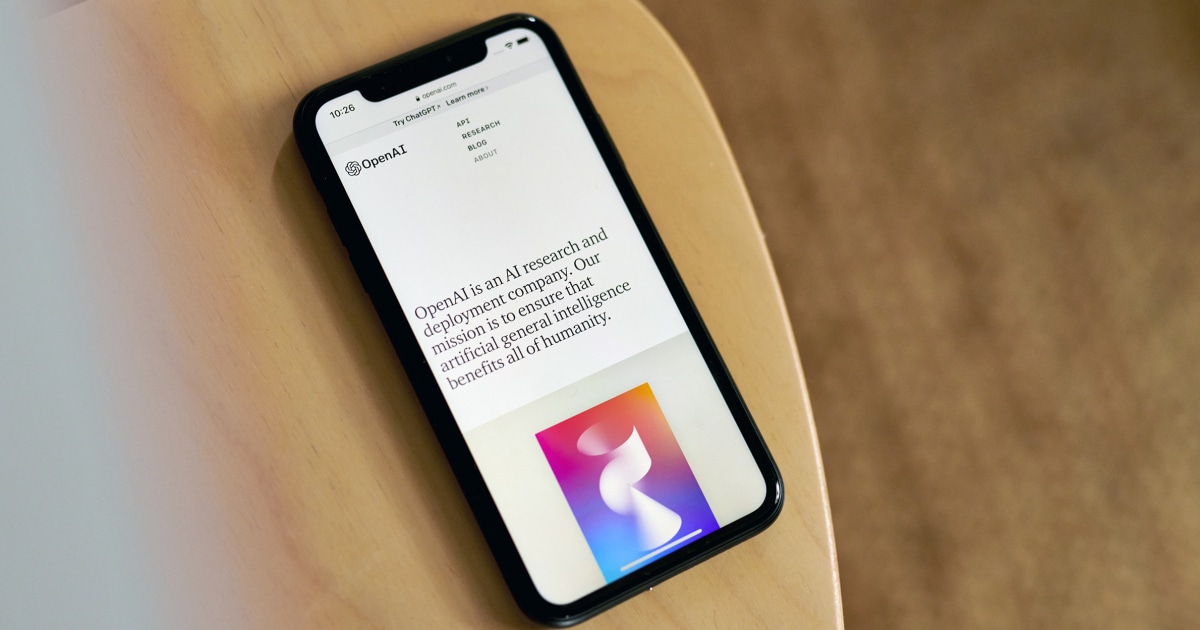
OpenAI, the San Francisco tech company that grabbed worldwide attention after releasing ChatGPT, said Tuesday it was unveiling a new version of its artificial intelligence software.
Called GPT-4, the software “can solve difficult problems with greater accuracy, thanks to its broader general knowledge and problem solving abilities,” according to an announcement on OpenAI’s website.
In a video that the company posted online, it said that GPT-4 had an array of capabilities that the previous iteration of the technology did not have, including the ability to “reason” based on images that users have uploaded.
“GPT-4 is a large multimodal model (accepting image and text inputs, emitting text outputs) that, while less capable than humans in many real-world scenarios, exhibits human-level performance on various professional and academic benchmarks,” OpenAI wrote on its website.
Andrej Karpathy, an OpenAI employee, tweeted that the feature meant the AI could “see.”
The new technology is not available for free, at least so far. OpenAI said that people could try out GPT-4 on its subscription service ChatGPT Plus, which costs $20 a month.
OpenAI and its ChatGPT chatbot have shaken up the tech world and alerted many people outside the industry to the possibilities of AI software, in part through the company’s partnership with Microsoft and its search engine, Bing.
But the pace of OpenAI’s releases has also caused concern because the technology is untested, forcing abrupt changes in fields from education to the arts. The rapid public development of ChatGPT and other generative AI programs has prompted some ethicists and industry leaders to call for guardrails on the technology.
Sam Altman, OpenAI’s CEO, tweeted Monday that “we definitely need more regulation on ai.”
The company elaborated on GPT-4’s capabilities in a series of examples on its website: the ability to solve problems, such as scheduling a meeting among three busy people; scoring highly on tests such as the uniform bar exam; and learning a user’s creative writing style.
But the company also acknowledged limitations, such as social biases and “hallucinations” that it knows more than it really does.
Google, concerned that AI technology could cut into the market share of its search engine and of its cloud-computing service, in February released its own software known as Bard.
The release of GPT-4, the fourth iteration of OpenAI’s foundational system, has been rumored for months amid growing hype around the chatbot that’s built on top of it.
In January, Altman tamped down expectations of what GPT-4 would be able to do, telling the podcast StrictlyVC, “people are begging to be disappointed and they will be.”
On Tuesday, he solicited feedback.
“We have had the initial training of GPT-4 done for quite awhile, but it’s taken us a long time and a lot of work to feel ready to release it,” Altman said on Twitter. “We hope you enjoy it and we really appreciate feedback on its shortcomings.”
Sarah Myers West, the managing director of the AI Now Institute, a nonprofit group that studies the effects of AI on society, said that releasing such systems to the public without oversight “is essentially experimenting in the wild.”
“We have clear evidence that generative AI systems routinely produce error-prone, derogatory and discriminatory results,” she said in a text message. “We can’t just rely on company claims that they’ll find technical fixes for these complex problems.”
OpenAI said it was planning an online demonstration for 1 p.m. PT (4 p.m. ET) on Tuesday on the Google-owned video service YouTube.
This is a developing story. Please check back for updates.
Source: | This article originally belongs to Nbcnews.com










